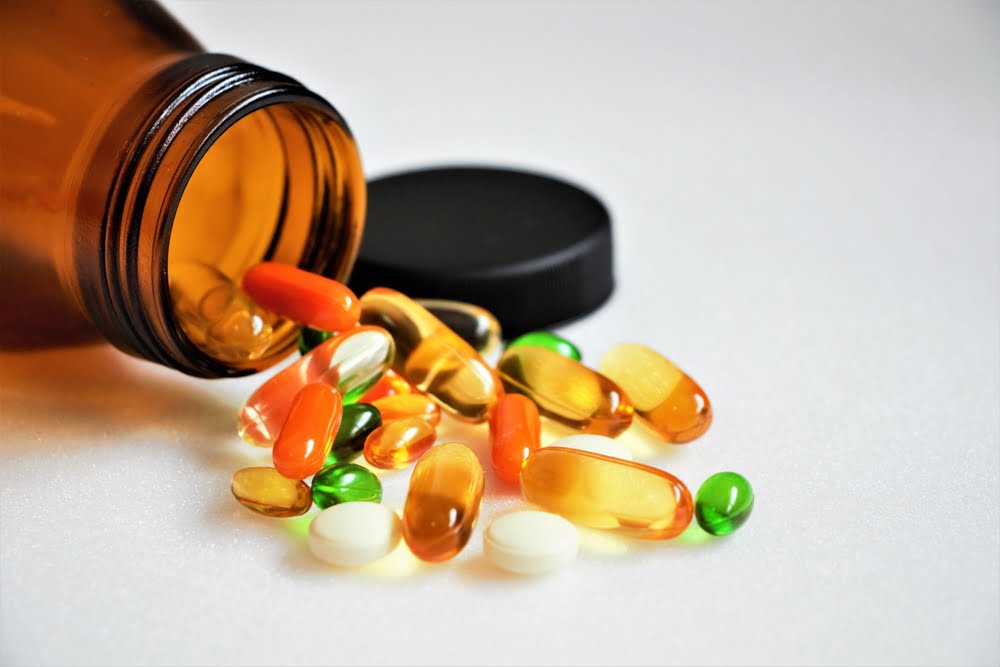Did you know a poor diet is often linked to low testosterone levels? In fact, men with diets high in refined carbohydrates, fats, and refined sugar, are 30% more likely to have low testosterone levels. Testosterone deficiency can cause a number of problems including low libido, decreased energy, poor concentration, and depression. It is also associated with cardiovascular disease and obesity.
Low testosterone, diet and exercise
A healthy diet and regular exercise are important for maintaining a healthy weight, reducing stress levels, and boosting overall energy levels. However, these lifestyle choices are also crucial for keeping testosterone levels high. A recent study from the Journal of Urology investigated the association between inflammatory diets and sex hormones in adult men. The study concluded that, “Men adhering to a more pro-inflammatory diet appear to have a higher risk of testosterone deficiency, indicating the important role of diet in male reproductive health.”

A diet high in both refined carbohydrates and fats, which is very common as a standard American diet, was associated with low testosterone. This is also independent of age, race, caloric intake, smoking status, education level, and BMI. Obesity, on top of having a pro-inflammatory diet, increases your risk of low t by 60%.
- High sugar intake can lead to a drop in testosterone levels due to the increased levels of insulin and inflammation, and weight gain, all of which can reduce testosterone production.
- A diet high in refined fats can also have a negative impact on testosterone levels. These oils are often highly processed, denatured, and they can contain unhealthy trans fats.
- Refined Carbohydrates that are commonly found in processed foods and can also lead to low t. When refined carbohydrates are consumed, they cause a spike in blood sugar levels that triggers the release of insulin, which can result in a decrease in testosterone. In addition, refined carbs can also promote the storage of fat, which can further reduce testosterone production.
- Testosterone is a hormone that plays a key role in muscle development and strength, so it is important to maintain optimal levels. Research has shown that regular exercise can help to increase testosterone levels, which can in turn lead to increased muscle mass and strength. In addition, regular exercise can help to improve energy levels and reduce stress, both of which can have a positive impact on testosterone production.
What are testosterone boosting foods?
A healthy diet is important for maintaining adequate hormone optimization and supplementing with certain foods may help to increase testosterone levels. But there are a few key nutrients that are important for optimal testosterone production: zinc, magnesium, and vitamin D.
Zinc
Foods that are high in zinc can also help to boost testosterone levels and improve overall health. Good sources of zinc include oysters, red meat, poultry, and seafood but it is also present in some plant foods, such as beans, nuts, and whole grains. Zinc is also an important mineral for sexual function, so it’s no surprise that oysters are often considered testosterone-boosting foods.
Magnesium
Magnesium is a mineral that plays a role in over 300 biochemical reactions in the body including energy production, metabolism, and muscle contraction. It is also essential and directly related to testosterone production. Magnesium helps to increase testosterone levels by reducing the amount of SHBG (sex hormone-binding globulin) in the body. SHBG binds to testosterone, making it unavailable for use by the body. By reducing the amount of SHBG, magnesium ensures that more testosterone is freely available for use. In addition, magnesium also helps to reduce cortisol, a stress hormone that can lead to testosterone suppression.
Vitamin D
One of the best ways to get vitamin D is through exposure to sunlight, but there are also several foods that are rich in vitamin D, including fatty fish, eggs, and fortified milk. A recent study on exercise performance showed that elite soccer players that were supplemented with 6,000 IU of vitamin D, increased their free and total testosterone levels. They also performed better during 5m speed tests compared to the placebo group.
Fish oil and testosterone

Does fish oil increase testosterone?
While there is no food that will instantly raise testosterone levels, certain nutrient-rich foods can help to support hormone production. Omega-3 fatty acids found in fish are one of the top dietary food sources that are antii-nflammatory. A recent randomized controlled trial showed that supplementation with ~1,000 of DHA Omega-3 enriched fish oil increased serum testosterone in overweight and obese men. Omega-3 fatty acids incorporate into the plasma membranes of Leydig cells increasing their responsiveness to luteinizing hormone and increasing testosterone synthesis.
While there are many foods that can help to boost testosterone, it’s important to remember that everyone is different, and what may work for one person might not work for another. Making dietary changes is not easy, however, they could have a big impact on your overall health and well-being. And while these supplements won’t magically boost your testosterone levels, incorporating them in your diet can help ensure that your body has the nutrients it needs to produce testosterone and maximize your overall health.


